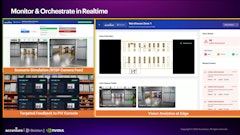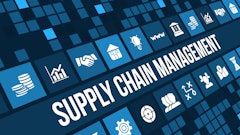
deagreez
Key highlights from Deloitte’s newly released study, 2021 Consumer Products Industry Outlook: No Regret Moves in the Face of Uncertainty, entail:
- Building supply chain resilience. More than 95% of consumer products executives surveyed indicated the importance of supply chain resiliency in achieving their strategic objectives; nine in 10 companies say they are making significant further investments to improve their supply chain resilience.
- Emphasis on data. About three in four executives agree they will make use of external data for predicting demand, and just over half see AI/machine learning beginning to replace historical statistical forecasting in 2021.
- Automation. Approximately one out of three companies indicated they will invest in robotic process automation to make processes more efficient, as well as migrating them to the cloud.
- Prioritizing flexibility and speed. Nine out of 10 executives are prioritizing the capability of their supply chains to react more quickly to consumer needs.
Another Deloitte study, 2021 Retail Industry Outlook: The New Rules of Retail, outlines how these sectors are adapting to improve supply chain resiliency. Key highlights include:
- Improving supply chain resiliency. Eight out of 10 retailers expect to make moderate-to-major supply chain investments in 2021.
- Visibility. More than half of retail executives surveyed noted that supply chain transparency (visibility into the full supply chain network) is important.
- Last-mile resilience. Retailers should measure how last-mile drives the supply chain; eight in 10 U.S. retailers view measuring resiliency as increasingly important.
With more than 75% on average respondents working toward improving their supply chain resilience, whether that be through automation, flexibility and visibility, these companies will be better positioned to mitigate future supply chain disruptions.




















